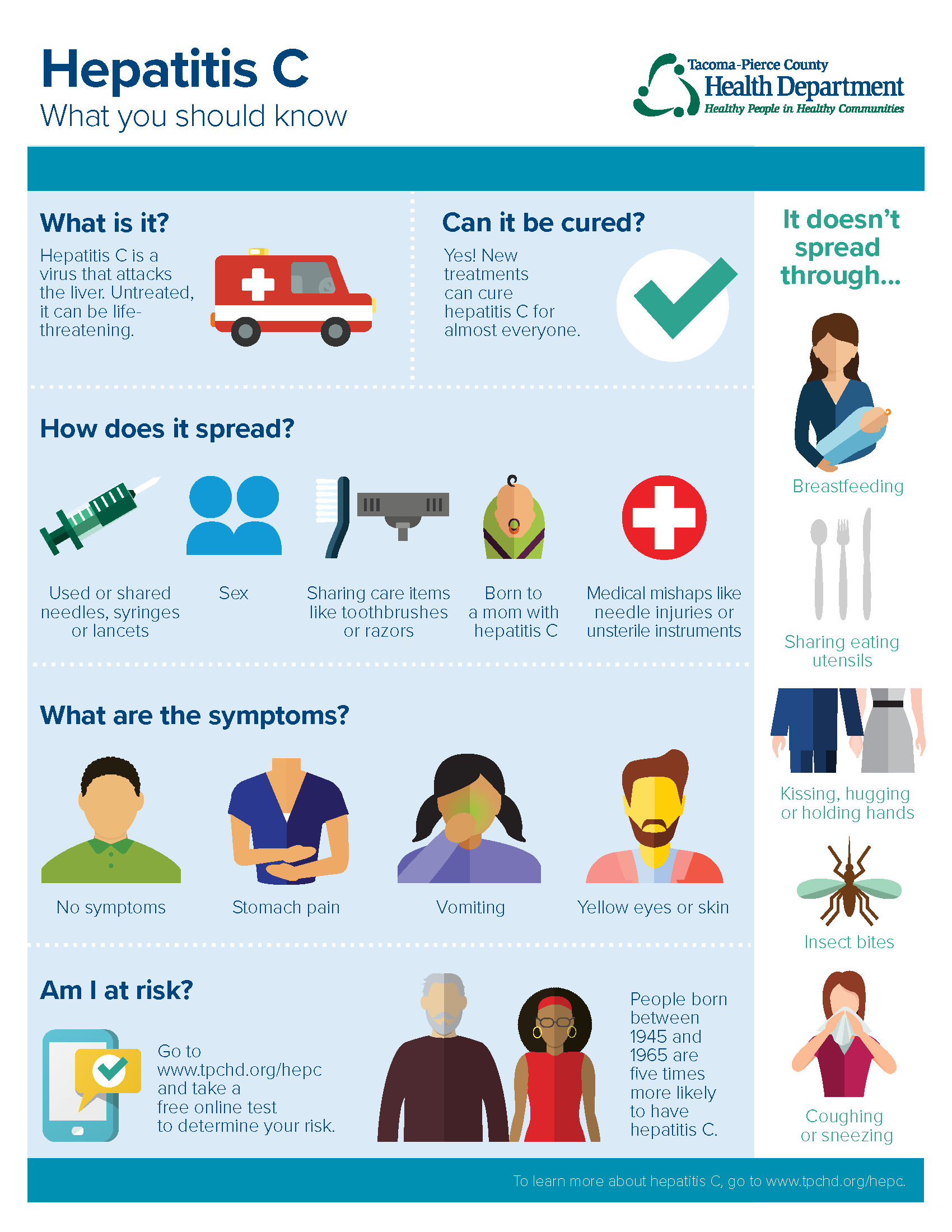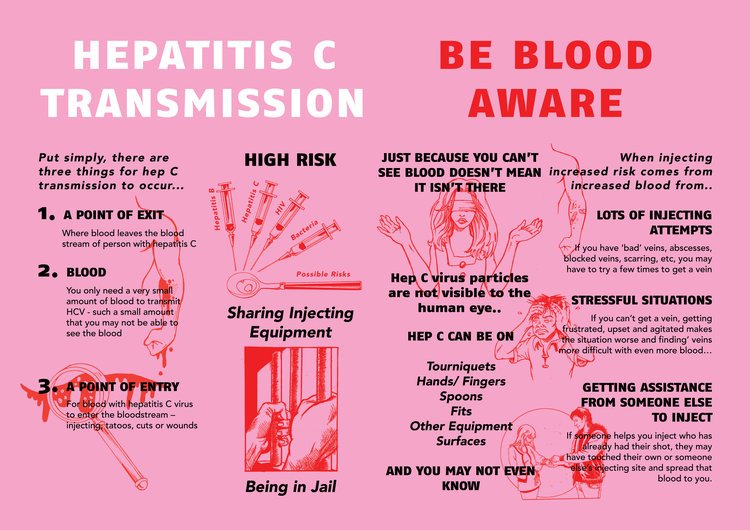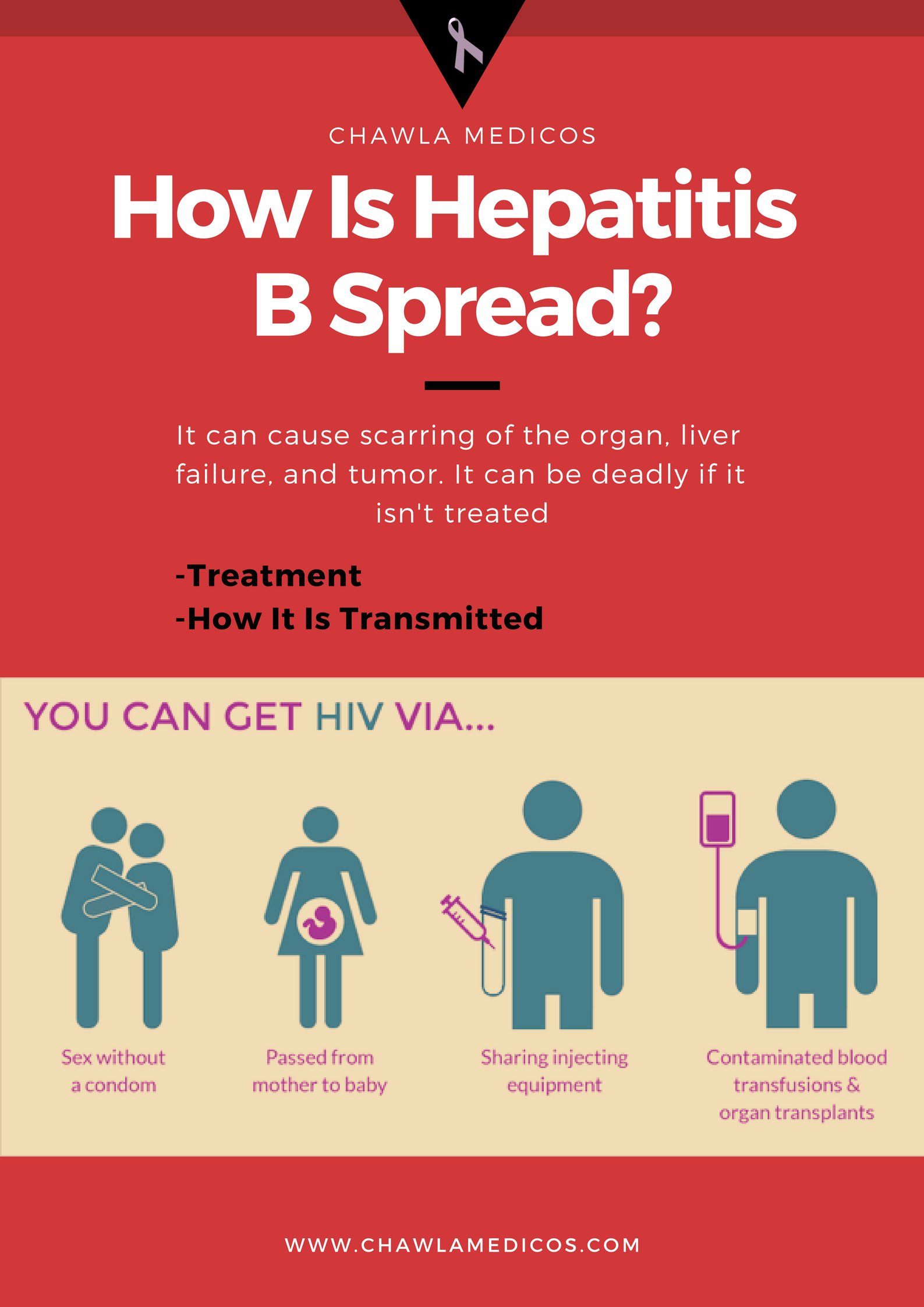Hiv And Hepatitis B And Hepatitis C Coinfection
Hepatitis B and hepatitis C are liver infections caused by a virus. Because these infections can be spread in the same ways as HIV, people with HIV in the United States are often also affected by chronic viral hepatitis.
Viral hepatitis progresses faster and causes more liver-related health problems among people with HIV than among those who do not have HIV. Liver disease, much of which is related to HBV or HCV, is a major cause of non-AIDS-related deaths among people with HIV.
Given the risks of hepatitis B or hepatitis C coinfection to the health of people living with HIV, it is important to understand these risks, take steps to prevent infection, know your status, and, if necessary, get medical care from someone who is experienced in treating people who are coinfected with HIV and HBV, or HIV and HCV.
Symptoms Of Hepatitis C
It is very important to know that not everyone with hepatitis C has symptoms. The only way to know if you have hepatitis is by talking to your doctor and getting a blood test.
Many people living with hepatitis C feel well and only have symptoms once the disease has progressed and there is serious liver damage.
If you do not have symptoms this does not mean that the virus isnt causing damage.
When first infected, some people may find:
- their urine becomes dark
- their eyes and skin turn yellow
- they experience a minor flu-like illness.
These symptoms may disappear within a few weeks, but this does not necessarily mean that the infection has been cleared.
Over time, symptoms that may develop include:
- tiredness and fatigue
- flu-like symptoms
- pain in the abdomen where the liver is located
- not feeling hungry and indigestion.
Around 30% of people who have been infected may clear the virus from their blood naturally, with no treatment, within 6 months. These people no longer have the hepatitis C virus and are not infectious, but will always have hepatitis C antibodies in their blood. The presence of hepatitis C antibodies shows that someone has been exposed to the virus, but does not offer any immunity against hepatitis C. People can become reinfected after clearing the virus naturally, or after treatment.
What Does High/low Viral Load Mean
Viral load is the amount of virus present in the bloodstream. It is expressed as the amount of viral genetic material per milliliter of blood. The amount of virus does not predict how severe the liver disease is or will become. The level of the viral load does not tell us anything about the risk of liver damage or how sick someone is. In hepatitis C, it matters if virus is present or absent. Some treatment regimens can be shortened if the patient has a low viral load to start with, but most often, treatment regimens are the same for people with high hepatitis C viral loads or low viral loads.
The RNA test is essential for making the diagnosis of hepatitis C infection–having a positive RNA test is the definition of having infection. After the diagnosis is made, the RNA level does not need to be checked over and over unless it is checked during the time that the patient is undergoing treatment. During treatment, regular RNA tests are done to follow the dropping virus level until it reaches an undetectable state. But before treatment and after treatment, repeated RNA testing is not necessary.
Recommended Reading: What R The Symptoms Of Hepatitis C
What Are The Tests For Hepatitis C
There are two blood tests needed to diagnose hepatitis C:
The antibody test–called HCV antibody, HCV Ab, or anti-HCV–is done first. If this test is positive, it means that you have been infected with hepatitis C at some point in the past. If your antibody test is negative, then you have never been infected with hepatitis C if you were infected within the past month or so, the test may not be accurate you may needed to be retested at a later date.
However, a positive antibody test does not tell you if you still have hepatitis C. For that, you need to have a HCV RNA test, which determines whether the virus itself is in the bloodstream.
If any RNA is present in the blood after 6 months from time of infection, then you have chronic hepatitis C.
If no RNA is detected in the blood after 6 months, you no longer have hepatitis C.
How Does Hepatitis C Spread

Hepatitis C is spread only through exposure to an infected person’s blood.
High-risk activities include:
- Sharing drug use equipment. Anything involved with injecting street drugs, from syringes, to needles, to tourniquets, can have small amounts of blood on it that can transmit hepatitis C. Pipes and straws to smoke or snort drugs can have blood on them from cracked lips or nosebleeds. Get into a treatment program if you can. At the very least, don’t share needles or equipment with anyone else.
- Sharing tattoo or piercing tools. Nonsterile items and ink can spread contaminated blood.
- Blood transfusions in countries that donât screen blood for hepatitis C.
- Nonsterile medical equipment. Tools that arenât cleaned properly between use can spread the virus.
- Blood or cutting rituals. Sharing the tools or exchanging blood can transmit hepatitis C.
Medium-risk activities include:
Don’t Miss: How To Treat Viral Hepatitis
What Is A Biopsy
A biopsy is a medical procedure. A tiny piece of liver is removed and examined to find out the extent of damage. It involves a large needle and local anesthetic, as well as some risk of bleeding. A pathologist looks at the piece of liver under microscopes to determine how much damage has occurred in the liver. This is a very useful test and used to be done very commonly. However, the procedure is done much less frequently than in the past. For most patients with hepatitis B and C, liver biopsy is not required. Today, other tests can be used to try to estimate the fibrosis in the liver.
If You Have Hepatitis C Should You Get A Flu Shot
Yes. Having chronic hepatitis C is actually a good reason to get the flu shot. Chronic hepatitis C is a condition that can increase your risk of complications if you do get influenza. That’s why it is recommended for people with hepatitis C, and most chronic liver diseases, to be vaccinated against the flu.
To stay up to date with your influenza vaccinations, you need to be vaccinated every year–ideally, early in the flu season or as soon as the vaccine becomes available. Typically, flu season is considered to be October to March. It’s best to get vaccinated annually because the vaccine is designed differently each year to target the strains of influenza that are expected to circulate during that particular flu season.
You May Like: Different Types Of Hepatitis C
Preventive Measures For Hcv Infection
Treatment options for hepatitis C are expensive, noncurative, and out of reach for the majority of people living in less-developed countries. Hence, prevention of infection remains an important public health goal.
HCV has a high mutation rate and multiple genotypes, which have challenged the development of an HCV vaccine. As a result, the primary means of prevention include infection-control practices in health care settings , the screening and testing of blood and organ donors, and viral inactivation in plasma-derived products. The development in the 1990s of highly effective assays to screen for HCV in donor blood greatly reduced the transmission of the virus in health care settings.
Risk-reduction counseling may help prevent the transmission of HCV among individuals who inject drugs.
Sharing Toothbrushes Scissors And Razors
There’s a potential risk that hepatitis C may be passed on through sharing items such as toothbrushes, razors and scissors, as they can become contaminated with infected blood.
Equipment used by hairdressers, such as scissors and clippers, can pose a risk if it has been contaminated with infected blood and not sterilised or cleaned between customers. However, most salons operate to high standards, so this risk is low.
Recommended Reading: Chronic Hepatitis C Without Hepatic Coma Hcc
Hepatitis C: How Does It Spread
It spreads through infected blood. In the U.S., sharing needles or other items used to inject drugs is the most common cause of infection. Getting a tattoo or body piercing with an infected needle is another means of exposure. A mother may pass the virus to their child at birth. In rare cases, unprotected sex spreads hepatitis C, but the risk appears small. Having multiple sex partners, HIV, or rough sex seems to raise risk for spreading hepatitis C.
How Can Hepatitis C Be Prevented
There is no vaccine to protect against hepatitis C.
However, you can reduce your risk of getting or spreading hepatitis C by:
- avoiding sharing personal care items, such as:
- razors
If you have hepatitis C, you can help prevent the spread of the disease by:
- not donating:
Read Also: What Is Hepatitis B Core Antibody
How Many People Have Hepatitis C
During 2013-2016 it was estimated that about two and half million people were chronically infected with HCV in the United States. The actual number may be as low as 2.0 million or as high as 2.8 million.Globally, hepatitis C is a common blood-borne infection with an estimated 71 million people chronically infected according to the World Health Organization .
What Is Chronic Hepatitis C

Doctors refer to hepatitis C infections as either acute or chronic:
- An acute HCV infection is a short-term illness that clears within 6 months of when a person is exposed to the virus.
- A person who still has HCV after 6 months is said to have a chronic hepatitis C infection. This is a long-term illness, meaning the virus stays in the body and can cause lifelong illness. An estimated 3.2 million people in the U.S. have chronic HCV.
Read Also: How Can Hepatitis C Be Treated
How Are Hepatitis B And Hepatitis C Spread From Person To Person
Like HIV, the hepatitis B and hepatitis C viruses spread:
- From mother to child: Pregnant women can pass these infections to their infants. HIV-HCV coinfection increases the risk of passing on hepatitis C to the baby.
- Sexually: Both viruses can also be transmitted sexually, but HBV is much more likely than HCV to be transmitted sexually. Sexual transmission of HCV is most likely to happen among gay and bisexual men who are living with HIV.
How Do You Prevent Hepatitis
Both hepatitis A and hepatitis B can be prevented with a vaccine. There is currently no vaccine available to prevent hepatitis C.
To prevent spreading or getting hepatitis A:
- Wash hands with soap and warm water for at least 20 seconds after using the bathroom, changing diapers, touching garbage or dirty clothes, and before preparing food and eating
- Follow guidelines for food safety
- Avoid unpasteurized milk or foods made with it
- Thoroughly wash fruits and vegetables before eating
- Keep the refrigerator colder than 40°F and the freezer below 0°F
- Cook meat and seafood until well done
- Cook egg yolks until firm
- Wash hands, knives, and cutting boards after contact with raw food
To prevent spreading or getting hepatitis B or hepatitis C:
- Practice safe sex and use a latex condom each time you have sex
- Dont share razors, toothbrushes, or any personal objects that might have blood on them
- Dont share needles or syringes
- Cover cuts and open sores with bandages
- Clean blood off of things with a mixture of bleach and water: use 9 parts bleach to one-part water
Don’t Miss: Hepatitis A B C Difference
Reactive Or Positive Hepatitis C Antibody Test
- A reactive or positive antibody test means that Hepatitis C antibodies were found in the blood and a person has been infected with the Hepatitis C virus at some point in time.
- Once people have been infected, they will always have antibodies in their blood. This is true even if they have cleared the Hepatitis C virus.
- A reactive antibody test does not necessarily mean that you have Hepatitis C. A person will need an additional, follow-up test.
Persons for Whom HCV Testing Is Recommended
- Adults born from 1945 through 1965 should be tested once
- Those who:
- Ever injected drugs, including those who injected once or a few times many years ago
- Have certain medical conditions, including persons:
- who received clotting factor concentrates produced before 1987
- who were ever on long-term hemodialysis
- with persistently abnormal alanine aminotransferase levels
- who have HIV infection
Risk Factors For Hepatitis C
Though the risk is believed to be low, you can contract hepatitis C by having unprotected sex with an HCV-infected person. This risk increases if you have multiple sex partners, have a sexually transmitted disease, or engage in rough sex or anal sex that causes bleeding. Having sex with an HCV-infected woman who is menstruating can also increase your risk, as the virus is passed through exposure to infected blood.
Aside from unsafe sexual activity, there are several other factors that increase your risk of getting hepatitis C, including if you:
- Use intravenous drugs now or have used them in the past
- Received a blood transfusion or organ transplant before July 1992, when better hepatitis C testing became available
- Received a clotting factor concentrate, which helps blood clot properly, made before 1987, when more advanced manufacturing methods were developed
Read Also: How Do I Get Hepatitis C
How Is Hepatitis C Spread Will My Loved Ones Catch It From Me
Household transmission of hepatitis C is extremely rare. Here are some ways the virus is transmitted:
The number one risk factor for infection and transmission is sharing needles for intravenous drug use. Most people who use IV drugs become infected with HCV within one year of sharing needles. Learn more.
Who Can Be Treated For Hepatitis C
Treatment decisions should be made by both you and your provider. Current treatments for hepatitis C are very successful and can cure most people of the virus.
You May Like: Hepatitis B Treatment Side Effects
What Is The Difference Between Relapse And Nonresponse
The goal of treating chronic hepatitis C is to completely clear the virus. This means that your “viral load” is zero or so low that the virus can’t be detected with standard blood tests.
Without treatment, the hepatitis C virus in liver cells constantly makes copies of itself, and the virus ends up not just in liver cells but also in the bloodstream. Treatment is intended to completely stop reproduction of the virus so that it doesn’t continue to enter the bloodstream or cause any more injury to liver cells.
Successful treatment results in a “sustained virological response.” This means the virus becomes completely undetectable before the treatment is finished, and it remains undetectable for 6 months after treatment is stopped.
A “relapse” means the viral load drops to an undetectable level before treatment is completed, but becomes detectable again within 6 months after treatment is stopped. Even if the virus returns at a level that is lower than it was before treatment, a relapse is still considered to have occurred. A relapse can be determined if the viral load starts to rise during treatment, or at any time after the virus becomes undetectable.
A “nonresponse” means the viral load never drops significantly and the virus remains detectable throughout the course of treatment.
Hepatitis C Is The Most Common Type Of Chronic Viral Hepatitis In The United States

Viral hepatitis is a group of infectious diseases that causes inflammation of the liver. There are five types of viral hepatitis, but the most common in the United States are hepatitis A, B and C.
Hepatitis A
If you travel internationally, you should be aware of your risks for hepatitis A. New cases most commonly result from American travelers who get infected while traveling to parts of the world where hepatitis A is common. Hepatitis A is spread by consuming food or water contaminated with fecal matter from an infected person, or by eating raw shellfish from water contaminated by sewage. Hepatitis A is an acute process. It never is a chronic disease and does not cause cirrhosis.
Prevention: The hepatitis A vaccine is recommended for children people with certain risk factors and international travelers. It requires two rounds of shots to be effective. Washing your hands and avoiding unsanitary drinking water or food washed with unsanitary water is also important. If you become infected, your body is usually able to clear the infection itself within a few weeks.
Hepatitis B
Prevention: Doctors recommend that all children get the hepatitis B vaccine. If you become infected, hepatitis B can range from a mild illness to a serious condition requiring hospitalization, and in some cases, it can become a chronic, lifelong problem.
Hepatitis C
You May Like: Cost For Hepatitis B Test